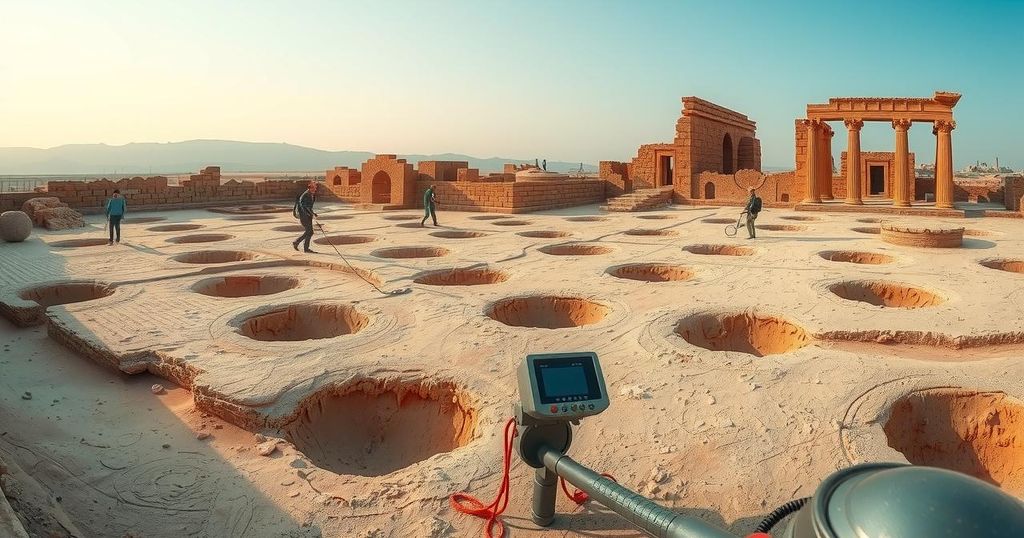Syria’s Treasure Hunting Fever Creates New Business Opportunity
- Metal detectors are becoming increasingly popular in post-Assad Syria.
- Palmyra has become a hotspot for treasure hunting activities.
- Desperate economic conditions drive people to search for historical artifacts.
- Experts argue that global demand for antiquities fuels the looting crisis.
The Rise of Metal Detectors Post-Assad
The metal detector business in Syria is on the rise, sparking what some are calling a treasure hunting fever. Following the collapse of the Assad regime, the country has seen a significant increase in the sales of metal detectors, once banned for their military applications. This increasing popularity comes as shops dedicated to this newfound hobby crop up in various locations across Syria, revealing a surprising twist in the nation’s recovery from years of conflict.
Palmyra: A Treasure Hunting Epicenter
According to William Christou, a reputable reporter on the subject, one of the epicenters of this treasure hunting mania is the ancient city of Palmyra. Christou highlights the alarming number of holes scattered throughout the archaeological site, left by desperate individuals searching for ancient burial sites. Many Syrians, facing pervasive poverty in the aftermath of war, are now driven to explore the remnants of their nation’s rich history, seeking to unearth artifacts that date back thousands of years.
Illicit Antiquities Trade’s Global Context
Amr Al-Azm, a respected Syrian archaeologist, sheds light on the broader implications of this trend. As the founder of the Athar Project, which monitors the trade of illegally looted antiquities across the Middle East, he notes that the rise of treasure hunting in Syria can be traced back, in part, to the disruptions caused by the Islamic State. Al-Azm emphasizes the urgent need for countries like those in Europe and North America to address the demand for antiquities, as only through a collaborative effort can the looting epidemic be significantly curtailed and heritage preserved.
In summary, the rise of metal detecting in post-Assad Syria marks a notable shift in the country’s landscape, intertwining the quest for historical treasures with pressing economic desperation. The situation in Palmyra illustrates the profound impact of conflict on cultural heritage, while experts like Amr Al-Azm call for global action to stem the tide of illicit antiquities trade. Understanding this phenomenon is essential, not just for Syria, but for the future preservation of cultural heritage worldwide.




Post Comment